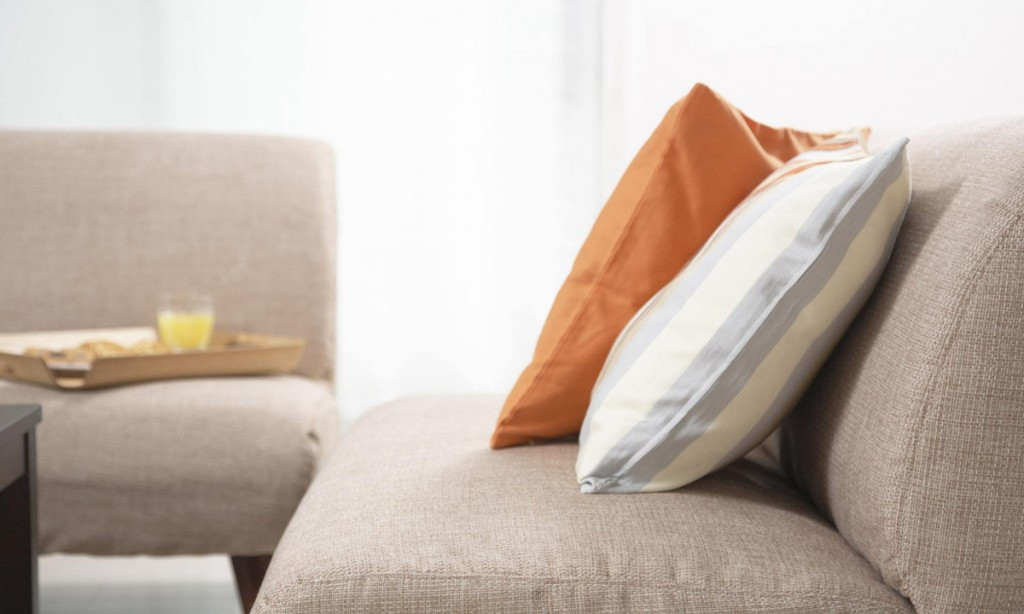Washing sofa covers helps keep them looking fresh and new. But the laundering process can cause fabric shrinkage if proper care isn’t taken. Follow these tips when cleaning removable sofa covers to prevent excessive shrinking.
Check Fabric Care Labels
The first step is to check fabric care labels for any special washing instructions. Symbols indicate if dry cleaning is required or if machine washing is acceptable. Labels also specify exact settings and water temperatures to use.
Follow all instructions carefully to prevent damaging or prematurely aging delicate upholstery fabrics. Never machine wash covers without first consulting the sewn-in tag.
Pre-Treat Stains and Soiling
Pretreat any stained or heavily soiled areas on sofa covers prior to laundering. Use an upholstery-safe stain remover and lightly work it into the fabric with a soft brush.
This helps lift surface dirt and grease that can become more stubborn to remove if washed in. Pretreating also avoids the need to excessively wash the entire slipcover trying to remove set-in stains.
Wash Gentle Cycle with Cold Water
Wash covers separately from other laundry on the gentle or delicate cycle setting. The slower agitation helps reduce friction that can damage fabrics. Use cold water to avoid excessive heat exposure that causes shrinking.
Skip the wash altogether if covers are only lightly soiled. Soaking them in cold water with a gentle detergent may suffice to freshen up the fabrics.
Limit wash loads to 2-3 covers at most so they have plenty of room to move around freely. Overcrowding causes pilling and crushing.

Rinse Thoroughly in Cold Water
After washing, rinse sofa covers several times in cold, fresh water to remove all traces of detergent. Leftover detergent residue on fabric can accelerate re-soiling.
Make sure covers are rinsed clean. Detergent buildup over time can lead to shrinking, roughness, and premature wear. Don’t skip this important step.
Air Dry Thoroughly
Tumble drying, even on low heat, causes upholstery fabrics to shrink. Always air dry covers after washing by laying flat or draping over a drying rack.
Place slipcovers outside or in a well-ventilated area so air can fully circulate on both sides. Direct sunlight will help dry heavy upholstery fabrics faster.
Completely dry covers before re-use to avoid mold and mildew growth. Dragging still damp covers across upholstery can transfer moisture.
Dry Clean for Problem Fabrics
Some delicate upholstery fabrics prone to excessive shrinking or that are dry clean only should be taken to a professional rather than home laundered.
Leather, microsuede, silk and velvet covers often require dry cleaning. The gentler process avoids damage from home washing.
Tell the dry cleaner the covers are for a couch. Request drying without heat or minimized heat to prevent shrinkage.
With proper handling, most decorative sofa covers can be safely machine washed without shrinking when steps are taken to minimize agitation, heat, and friction during laundering. Refer back to fabric care tags for best results.
Choosing Fabrics that Resist Shrinking
When shopping for washable slipcovers, opt for fabrics with inherent shrink resistance.
- Cotton duck and denim shrink minimally and hide wrinkles.
- Microfiber and microsuede fabrics maintain their shape and size after repeated laundering.
- Heavyweight polyester blends resist shrinking better than light cottons or linens.
- Pre-shrunk fabrics should say “preshrunk” on the tag. This indicates they’ve already contracted to the expected amount.
- Natural fibers like linen and cotton shrink the most, especially when washed in hot water.
Ask retailers about a fabric’s propensity to shrink before purchasing covers to launder frequently. Refer to care instructions for washing guidance. With proper handling, machine washable sofa covers can maintain their fresh look for years through repeated careful laundering.
